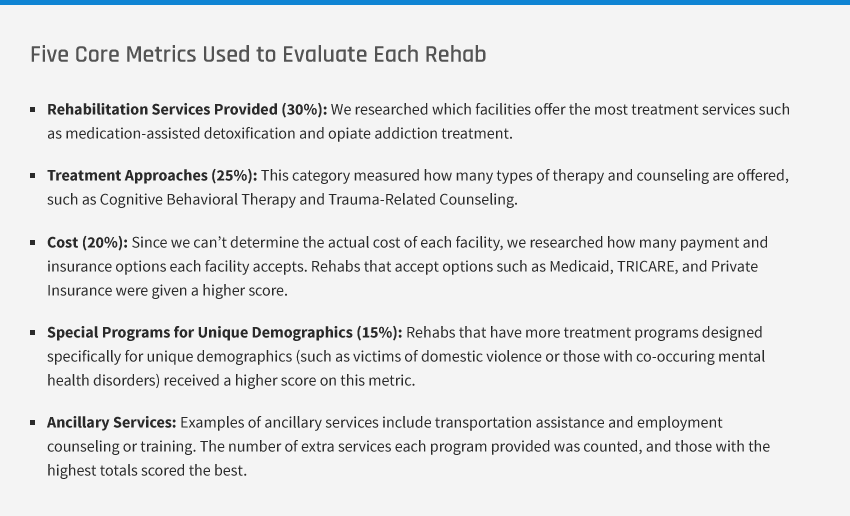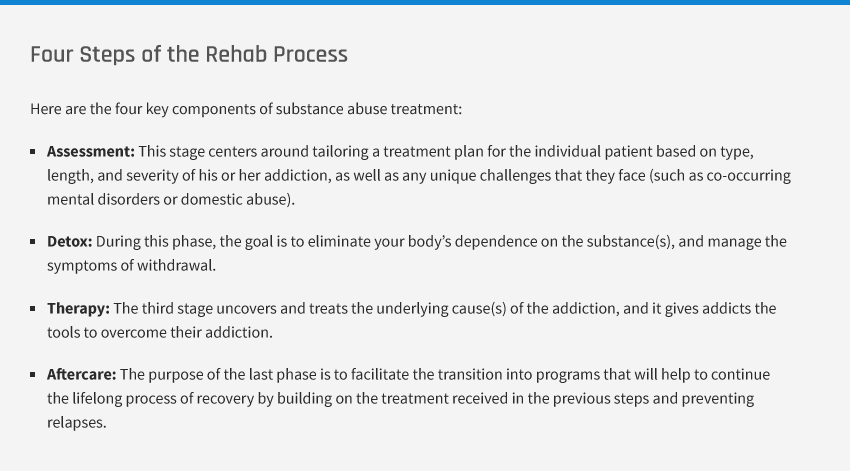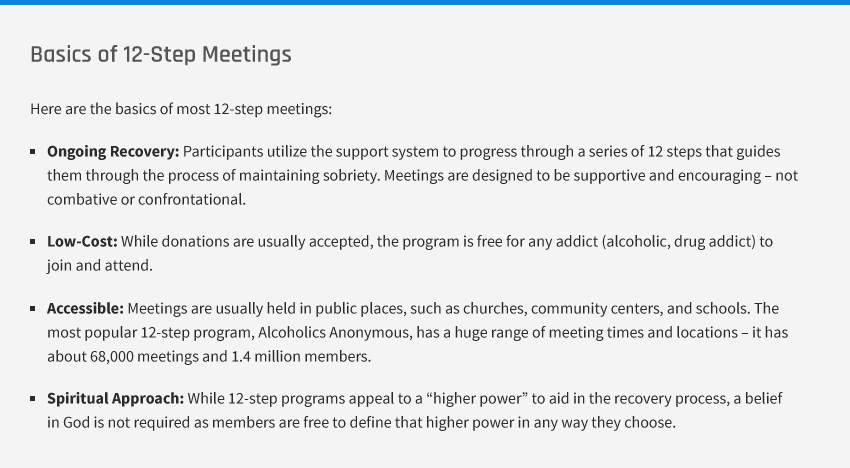The joint issues of opioid overprescription by physicians and opioid overuse and overdose by patients have been plaguing both Maricopa County and Arizona as a whole in recent years. However, between June 2017 and January 2018, Maricopa County recorded 3,114 total opioid overdoses or 7.06 opioid overdoses per 10,000 people. Compared to the neighboring Pima County, which has 9.56 opioid overdoses per 10,000 people, Maricopa County has a lower overdose rate due to opioids. Arizona reported 5,202 opioid overdoses in the same time period, and the state’s prevalence of 7.25 opioid overdoses per 10,000 people is nearly identical to Maricopa County’s rate.
Alcohol, Drug, and other Rehab Centers in Phoenix, AZ
TABLE OF CONTENTS
Getting Help
What to Consider When Choosing a Rehab Center
As you consider which rehab programs and treatments to explore, the following questions can help you clarify your options:
- Which service setting is best for me? Read the following guides to understand residential inpatient programs and outpatient programs.
- Which specialized rehab programs do I need? Read about the differences between holistic rehabs, rehabs for dual diagnosis, and programs exclusively for alcohol and drug detox.
- How long should I stay? Consider whether a shorter rehab length (30 days) or a longer-term option (60, 90, or 120+ days) is best for you.
The severity of your addiction, your financial position, and your unique personal situation will influence your treatment options.
For more information on how to make all of these decisions, read our guide to Choosing the Right Rehab.
The Best Rehabs in Phoenix, AZ
The cost of rehab can be high, depending on your needs and location. You can receive help to break free of your addiction, whether or not you have insurance. According to the Substance Abuse and Mental Health Administration (SAMHSA), there are 165 substance abuse treatment centers in the Phoenix area. Many of these organizations are on a mission to provide substance abuse recovery services to residents, regardless of financial status. Out of these 165 rehabs, Terros Health 27th Avenue Health Care has received the highest overall score based on our five core metrics.

We used these five core metrics to evaluate the quality of each facility. For more information, feel free to read a full breakdown of our filtering process and ranking methodology.
1. Terros Health 27th Avenue Health Center
With an overall score of 7.9 points out of 10 possible points, Terros Health 27th Avenue Health Center has scored the highest of all facilities we researched. This center provides outpatient rehabilitation services for those struggling with addiction, including those who have also experienced mental illness, incarceration, or the aftermath of various traumas.
Rehabilitation services at this center are offered in an integrated manner, and counseling works in tandem with medications to aid both substance detoxification and psychiatric conditions. Matrix model substance abuse counseling, group counseling, cognitive behavioral therapy, anger management, and six other treatment approaches are used at this facility.
Patients will also find a wide variety of assistance not directly related to their addiction. These ancillary services include family counseling, social skills development, transportation services, and health education, including screenings for HIV and hepatitis, and more. A multitude of payment options, including private health insurance, TRICARE, Medicaid, Medicare and Access to Recovery vouchers, are available to cover the cost of care at this facility. Additionally, a sliding scale payment program based on income and financial need is offered to patients who must pay for their own care.
- Rehabilitation Services Provided: 9.24
- Treatment Approaches: 7.15
- Cost: 8.58
- Special Programs for Unique Demographics: 5.39
- Ancillary Services: 8.4.
2. Horizons Health & Wellness Casa Grande Outpatient Behavioral Health
Horizons Health & Wellness Casa Grande Outpatient Behavioral Health scored 7.5 out of 10 points in our rankings. This facility uses medication to assist with detoxification in some circumstances, while also relying on a variety of medications to treat psychiatric disorders. The Casa Grande Outpatient Behavioral Health Center offers ten different treatment approaches, including rational emotive behavioral therapy, trauma-related counseling, motivational interviewing, relapse prevention, and more.
This center excels at delivering services to a variety of populations. Concerns specific to military personnel, LGBTQ individuals, pregnant and postpartum women, clients referred from the court system, and ten other unique groups will all find help here that is tailored to their circumstances. The center also supports its clients with 34 ancillary services that include health screenings, transportation services, assistance with obtaining social services, employment counseling, and much more.
Since it strives to be affordable to everyone, this facility accepts Medicaid, Medicare, private and state-financed health insurance, TRICARE, and local and federal government funding. For patients who must pay for their own care, Horizons employs a sliding scale fee based on income and need.
- Rehabilitation Services Provided: 6.16
- Treatment Approaches: 7.15
- Cost: 8.58
- Special Programs for Unique Demographics: 9.24
- Ancillary Services: 7.56
3. Community Bridges, Inc. Central City Addiction Recovery Center
Central City Addiction Recovery Center, one of many substance abuse treatment programs operated by Community Bridges, Inc. in the Phoenix area, scored 7 out of 10 points in our rankings. This center offers inpatient and outpatient options. Patients here benefit from a blend of therapy and medication-assisted treatment for alcohol, opioid, and other substance dependencies. A variety of treatment approaches include cognitive behavioral therapy, dialectical behavioral therapy, trauma-related counseling, 12-step facilitation, and several more.
This center scored a perfect 10 points in the category of ancillary services. Job training, educational services, health screenings, marriage counseling, transportation services, and tobacco cessation are just a few of the services that help patients improve their lives while focusing on beating their addiction. The facility also offers a program for patients with co-occurring mental illnesses.
The center accepts any of the following forms of payment: local and federal government funding, Medicare, Medicaid, TRICARE, and private pay. It also readily assists those who are unable to pay, pledging that it will deny services to no one regardless of ability to pay.
- Rehabilitation Services Provided: 7.7
- Treatment Approaches: 8.58
- Cost: 7.15
- Special Programs for Unique Demographics: 0.77
- Ancillary Services: 10
Top-Rated, Low-Cost Treatment Centers in the Phoenix Metro Area
| Rank | Rehab | Total Score | Contact Information |
| #1 | Terros Health 27th Avenue Health Center | 7.9 | 3864 North 27th Avenue Phoenix, AZ 85017 Main Tel: 602-797-7000 |
| #2 | Horizons Health & Wellness Casa Grande Outpatient Behavioral Health | 7.5 | 210 & 222 East Cottonwood Lane Casa Grande, AZ 85122 Main Tel: 520-836-1688 |
| #3 | Community Bridges, Inc. Central City Addiction Recovery Center | 7.0 | 2770 East Van Buren Street Phoenix, AZ 85008 Intake Tel: 602-273-9999 |
| #4 | Community Bridges, Inc. Casa Grande SRU & Outpatient Services Center | 7.0 | 675 East Cottonwood Lane Casa Grande, AZ 85122 Main Tel: 520-426-0088 Intake Tel 1: 877-931-9142 |
| #5 | Community Bridges, Inc. West Valley Access Point & Transition Point | 6.8 | 824 N. 99th Avenue Avondale, AZ 85323 Main Tel: 877-931-9142 |
| #6 | A Better Today Scottsdale Recovery | 6.7 | 15721 N. Greenway Hayden Loop, Suite 205 Scottsdale, AZ 85260 Main Tel: 480-351-1662 Intake Tel: 888-906-0952 |
| #7 | Community Bridges, Inc. East Valley Addiction Recovery Center | 6.6 | 560 S. Bellview Mesa, AZ 85204 Main Tel: 480-962-7711 |
| #8 | Terros Health McDowell Health Center | 5.9 | 7735, 4909 East McDowell Road Phoenix, AZ 85008 Main Tel: 602-685-6000 |
| #9 | Terros Health Stapley Health Center | 5.7 | 5060, 1111 South Stapley Street Mesa, AZ 85204 Main Tel: 602-685-6000 |
| #10 | Native American Connections, Inc. Outpatient Clinic | 5.6 | 4520 North Central Avenue, Suite 100 Phoenix, AZ 85012 Main Tel: 602-424-2060 |
Finding a Substance Abuse Treatment Center in Phoenix
Start by determining your coverage
To learn more about available options for treatment, it is imperative that you understand your personal health coverage. Contact your private or healthcare marketplace insurance to find information on your options. To determine your eligibility for low-income Medicaid services, visit the Arizona Health Care Cost Containment System. No matter the kind of coverage you have, public and private insurance companies must cover substance abuse treatment for qualified individuals.
Use our database to find a treatment center near you
The tool below lists all of the treatment centers in the state of Arizona recognized by the Substance Abuse and Mental Health Services Administration (SAMHSA). Input your zip code and select the filter icon to find relevant treatment centers near you.
Schedule an assessment
If you are pursuing treatment that will be covered by insurance, your first step will be scheduling an assessment by a qualified individual, such as a therapist or counselor. Most facilities provide assessments, or your primary care provider may be able to refer you. Contact companies in our database above to find out if they will provide this service.
Find a Rehabilitation Facility Near You
Filter Your Search
Popular Searches
Type Of Care
Treatment Approaches
Service Setting
Age Groups Accepted
Ancillary Services
Facility Operation
Facility Smoking Policy
Gender Accepted
Language Services
License Certification Accreditation
Payment Assistance Available
Payment Methods and Insurance Accepted
Special Programs Groups Offered
What to Expect in Rehab
Numerous techniques and philosophies inform the practices within the addiction recovery industry. As theories are tested, the science of studying addiction shifts and improves. However, the core elements of rehabilitation are very similar.

For more on what to expect in rehab, read our guide on the addiction rehabilitation process.
Finding Aftercare in Phoenix
The rehabilitation process can be a lifelong venture, and the chances of relapse increase if the patient does not have a suitable aftercare plan in place. Follow-up visits for continued therapy, sober living homes, and group therapy are all forms of aftercare that support lifelong sobriety. Research shows that long-term participation in aftercare activities dramatically improves the outcome of rehabilitation efforts.
Alcoholics Anonymous (AA), a nationwide support group, created the 12-step process for alcohol addiction recovery. Narcotics Anonymous (NA) follows a 12-step group therapy format inspired by the AA model for those struggling with drug addiction. Many other organizations have also followed in AA’s footsteps.
Alcoholics Anonymous (AA), a nationwide support group, created the 12-step process for alcohol addiction recovery. Narcotics Anonymous (NA) follows a 12-step group therapy format inspired by the AA model for those struggling with drug addiction. Many other organizations have also followed in AA’s footsteps.

Contact the appropriate local organization to find an AA or NA meeting near you
See our directory tool below to find organizations that can help you find your local Alcoholics Anonymous (AA) or Narcotics Anonymous (NA) group meetings. Since meeting times and locations change periodically, calling ahead to verify the information is always a good idea before you attend your first meeting.
Alcoholics Anonymous (AA) and Narcotics Anonymous (NA) Database
| Name | City | Program | Telephone | Spanish Hotline |
|---|
Sober Living Homes
Sober living homes, or recovery residences, encourage independence and sobriety. The environment of these homes is supportive and positive, and residents ultimately benefit from the no-tolerance policy towards drugs and alcohol. Sober living homes encourage productivity and the cultivation of both interpersonal and employment skills. Research shows that integrating into such a community encourages people to break free of harmful behavioral cycles and build a life beyond addiction.
Residents of sober living homes are expected to complete chores and cover some rental costs in an effort to learn healthy habits and take pride in their new lifestyles. Support groups in each home are based upon house principles, and attendance is mandatory. Residents are usually welcome to stay from a few months or even many years, as long as they follow all rules and avoid relapse.
You can find sober living homes in and around Phoenix by checking our database, or you can select the appropriate filter from our tool above. Alternatively, you can head to our guide on sober living homes and learn more about them, as well as search for a certified recovery residence in your area.
Substance Abuse in Phoenix
Opioid overdoses are less prevalent in Maricopa County than in Pima County
7.06%
opioid overdoses per 10,000 Maricopa County residents, 2017-2018
9.56%
opioid overdoses per 10,000 Pima County residents, 2017-2018
In light of the overdoses that its communities suffer, Maricopa County is leading the fight against opioid addiction in Arizona by changing the relationship between addicts and law enforcement. Inspired by the Police Assisted Addiction and Recovery Initiative (PAARI), Maricopa County piloted Arizona’s Angel Initiative, a police-assisted opioid addiction recovery program that treats addiction as a disease instead of a crime, in 2016. Maricopa County residents in possession of opioids who are without a previous record of violence or drug trafficking may approach participating police precincts, surrender their opioids, and request help with treatment without fear of arrest. The Angel Initiative website has further information on who is eligible to participate in the program.
From 2016 to 2018, the Maricopa County Angel Initiative served 172 patients, which equals 1.15% of the estimated 15,000 patients that have been served by similar police-assisted addiction recovery programs nationwide since the inception of such programs in June 2015.
Maricopa County has the second highest rate of excessive drinking in Arizona
Alcohol abuse is a serious concern both in the state of Arizona and throughout the United States, but alcohol’s ubiquity in our culture makes denial about addiction easy both for addicts and, often, their loved ones as well. Residents of Maricopa County may be surprised to learn that the most recent data available indicates their county has the second highest rate of excessive alcohol use in the state.
17%
of Arizona residents self-reported excessive drinking, 2016
19%
of Maricopa County residents self-reported excessive drinking, 2016
Comparisons of 2016 county health survey data, which relied on self-reporting of heavy and binge drinking, indicate that 19% of Maricopa County adults reported a pattern of excessive drinking. Only Coconino County adults reported a higher percentage, with 20% of adults revealing that they engaged in excessive drinking. The state average during the same time period was 17%, and 10 out of 15 Arizona counties reported a rate lower than 17%. It should be noted that the actual number of adults participating in excessive drinking may be higher since respondents answering personal questions tend to under-report for a variety of reasons.
Interestingly, a separate 2016 CDC report found that Phoenix has a lower rate of binge drinking than some other Maricopa County cities. The CDC estimated that Gilbert’s percentage of binge drinking adults during the reported time was 20.3%, while Tempe’s rate was 19.3%, and Chandler’s rate was 18.6%. However, the percentage of adult binge drinkers in Phoenix was comparatively low at 16.5%.
Maricopa County’s percentage of drug and alcohol deaths is higher than the national average
Between 2008 and 2017, 43,772 deaths were tragically induced by alcohol and/or drugs in Maricopa County. Alcohol consumption was responsible for almost 20% of those deaths, and the rest were the result of a variety of other drugs, including prescription and non-prescription opioids, cocaine, methamphetamines, and more. Statewide historical analysis suggests that almost 86% of all deaths involved opioids combined with non-opioid drugs, indicating that mixing drugs is a driving factor in overdose deaths, both in Maricopa County and in other areas of the state.
13.91%
of Maricopa County deaths caused by drug and alcohol, 2008-2017
12.71%
of U.S. deaths caused by drug and alcohol, 2008-2017
The percentage of Maricopa County deaths induced by drugs and alcohol is higher than the national average. In Maricopa County, this percentage is 13.9%; nationally, the percentage is 12.71%. While not drastically higher than the national average, this county percentage still signals the daunting issue of overdose deaths among its residents.
Drug and Alcohol-Induced Deaths in Maricopa County Between 2008 and 2017
| 0-17 | 18+ | All Ages | |
| Drug-Induced Deaths in Maricopa County | 81 | 35,164 | 35,246 |
| Alcohol-Induced Deaths in Maricopa County | 7 | 8,519 | 8,526 |
| Total Deaths in Maricopa County | 5,235 | 309,353 | 314,655 |
| Percentage of Drug & Alcohol-Induced Deaths in Maricopa County | 1.68% | 14.12% | 13.91% |
Source: CDC Wonder
Key Indicators of Substance Abuse
It can be difficult to determine how many residents in a given area are suffering from addiction. Shame and fear too often render those with substance use disorders reluctant to discuss their addiction or seek help. Despite the difficulties involved in studying and communicating about substance abuse, we can gain insight into a community’s addiction problems by looking at suicide records and data on the homeless population in the area.
Deliberate overdoses in Maricopa County decreased between 2015 and 2017
8%
of suicides from deliberate overdose in Maricopa County, 2017
12%
of drug-induced suicides in Maricopa County, 2017
Substance abuse often plays a role in suicides. In 2017, 12% of suicides in Maricopa County were drug-induced – meaning they were carried out under the influence of an illegal substance – and at least 8% of all fatal overdoses were deliberate. Encouragingly, however, the number of deliberate fatal overdoses decreased from 12% in 2015 to 8% in 2017. Conversely, the percentage of drug-induced suicides wavered between 11% and 13% during the same time period.
Substance abuse among Maricopa County homeless more than doubled in five years
The homeless population in Maricopa County is facing a growing substance abuse problem. Maricopa County’s Point-In-Time homeless surveys from 2013 to 2017 indicate that substance abuse in the homeless community more than doubled during that five-year span.
In 2013, seven in 100,000 Maricopa County homeless persons reported having a substance use disorder (SUD). That rate fluctuated between 2014 and 2016 but still demonstrated an upward trend. The most recent survey data from 2017 revealed the rate of homeless persons dealing with a SUD had risen to 16 in every 100,000. However, it should be noted that this data may not represent the totality of the homeless population with a SUD since stigma sometimes causes people to underreport their own substance abuse.
Take Action
Multiple resources exist in Phoenix and its surrounding areas for individuals struggling with substance dependency. Use our tool to discover a rehabilitation center near you that can help to determine your insurance coverage and your rehab needs. If you don’t have insurance or are concerned you are unable to afford treatment, many low-cost centers can still be of assistance.


